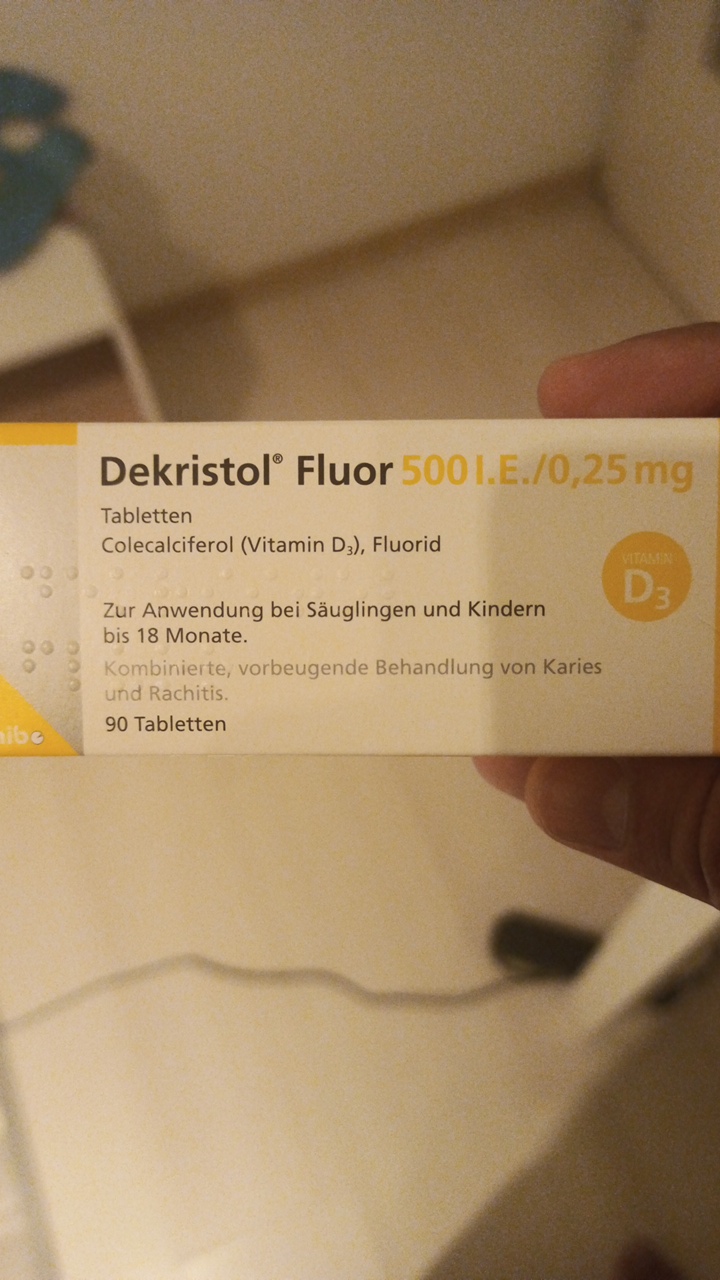
Barcode: -18239975
Dekristol Fluor 500 I.E./0,25 mg
HALAL
📝 Reason: Colecalciferol’s halal status is uncertain unless the source (plant, synthetic, or animal with valid slaughter method) is specified, as per IFANCA and general halal guidelines. Fluoride is permitted unless combined with a haram ingredient. The doubtful status follows Islamic guidance to avoid uncertain (shubha) ingredients (see Quran 5:3 on prohibited sources; www.ifanca.org).
🏷️ Category: Vitamin Supplement
📄 Certificates: 90 Tabletten, Vegetarisch, Vegan
Ingredients:
Details
Understanding the Halal Status of Dekristol Fluor 500 I.E./0,25 mg
Deciding whether a product is Halal is crucial for many consumers, especially within the Muslim community. This article takes a closer look at Dekristol Fluor 500 I.E./0,25 mg, a vitamin supplement that provides essential nutrients but raises questions regarding its Halal status due to its ingredients. Our investigation dives into the sources of these ingredients and provides clarity regarding their compliance with Halal guidelines.
Halal Confirmation
The product is confirmed HALAL, which is a positive aspect for consumers adhering to Islamic dietary laws. However, it’s essential to understand the reasoning behind this confirmation, particularly looking into its ingredients: colecalciferol (vitamin D3) and fluoride.
Ingredients Breakdown
Understanding each ingredient’s Halal status is crucial in assessing the overall product. Let’s examine each of these:
Colecalciferol (Vitamin D3)
- Status: Uncertain unless specified.
- Details: Vitamin D3 can originate from various sources, including wool (lanolin), fish, or plants. The uncertainty lies in whether the source is plant-based or animal-derived. If the source is animal-derived, the Halal status hinges on whether the slaughter method complies with Islamic law.
- Sources: Research indicates that many Vitamin D3 supplements are made from lanolin derived from sheep. However, if it’s not explicitly stated that it is from a vegetarian or synthetic source, there could be issues since dietary laws dictate adhering to products sourced from Halal-slaughtered animals.
- Further Reading: For more guidelines, refer to IFANCA FAQs and NIH Research Matters.
Fluoride
- Status: Permitted.
- Details: Fluoride is a naturally occurring mineral and is typically obtained from sodium fluoride, making it inorganic. It is noted to be free from any animal or haram alcohol content.
- Conclusion: Fluoride does not pose any risk in terms of Halal compliance.
- Sources: For a comprehensive overview, check out Halal Food Foundation.
Certificates and Additional Information
Another reassuring aspect of Dekristol Fluor is its certification. The product is indicated to contain 90 tablets, is vegetarian, and certified vegan. This aligns well with the increasing demand for such supplements among consumers who place emphasis on dietary choices adhering to ethical and religious guidelines.
Category Context
As a part of the Vitamin Supplement category, Dekristol Fluor addresses the nutritional requirements of individuals seeking to boost their Vitamin D intake, especially in regions with limited sunlight. Ensuring that these supplements are Halal-certified has become crucial.
Conclusion
In conclusion, while Dekristol Fluor 500 I.E./0,25 mg is classified as HALAL, consumers should be informed about the source of colecalciferol, as its status remains uncertain unless verified further. Fluoride, being straightforward in its Halal status, adds to the confidence in consuming this product. Always check the labeling for source information or seek clarification from the manufacturer if you’re unsure about any ingredients.
This detailed examination aids in making informed decisions for a healthy lifestyle while adhering to Halal dietary practices.
